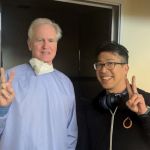Preventing Tooth Loss in Older Adults with Proper Care
- The Importance of Dental Care for Older Adults
- Common Causes of Tooth Loss in Older Adults
- Steps to Prevent Tooth Loss
- Dental Services for Older Adults
- Maintaining Oral Health Beyond Preventive Care
The Importance of Dental Care for Older Adults
As we age, our bodies go through numerous changes, and our teeth are no exception. Maintaining good oral health becomes even more essential as we grow older to prevent common issues like gum disease, tooth decay, and tooth loss. Unfortunately, many older adults underestimate the importance of dental care, which can lead to severe health complications. Proper dental care not only helps preserve the functionality of your teeth but also has a profound impact on overall health and well-being.
In this article, we will explore the significance of dental care in preventing tooth loss, specifically for older adults. We will dive into the common causes of tooth loss, share practical steps for prevention, and discuss essential dental services that can ensure long-term oral health.
Common Causes of Tooth Loss in Older Adults
Tooth loss in older adults is more common than one might think. Various factors contribute to the loss of teeth, some of which are preventable with proper care. Understanding the causes of tooth loss is the first step in taking proactive measures to protect your teeth. Below are some of the most common causes:
1. Gum Disease (Periodontal Disease)
Gum disease is one of the leading causes of tooth loss in older adults. It starts as gingivitis, which is a mild form of gum disease, but if left untreated, it can progress into periodontitis, a more severe condition that can cause gums to recede, leading to tooth loss. Proper brushing, flossing, and regular dental cleanings are key to preventing gum disease.
2. Tooth Decay
Tooth decay, or cavities, can lead to tooth loss when not treated. As we age, the enamel on our teeth naturally weakens, and older adults are at a higher risk of developing cavities. Plaque buildup and a decrease in saliva production can also increase the chances of tooth decay. Regular dental visits and fluoride treatments can help prevent tooth decay.
3. Dry Mouth (Xerostomia)
Dry mouth, a common issue for older adults, is caused by a decrease in saliva production. Saliva helps neutralize acids and wash away food particles, so when there is a lack of saliva, the risk of tooth decay, gum disease, and tooth loss increases. Saliva substitutes and staying hydrated can help manage this condition.
4. Teeth Grinding (Bruxism)
Teeth grinding, also known as bruxism, is another common cause of tooth loss in older adults. This often occurs during sleep and can cause significant damage to teeth. It can wear down enamel, loosen teeth, and increase the likelihood of tooth loss. If you suspect you are grinding your teeth, consult a dentist for treatment options, such as a mouthguard.
Steps to Prevent Tooth Loss
While some causes of tooth loss are unavoidable, there are several steps older adults can take to preserve their teeth and maintain good oral health. Here are some essential practices to prevent tooth loss:
1. Maintain a Regular Oral Hygiene Routine
Brushing and flossing your teeth regularly is the first line of defense against tooth loss. Brush your teeth at least twice a day with fluoride toothpaste and floss once daily. Proper technique is essential, so be sure to use gentle, circular motions when brushing, and make sure to clean between your teeth thoroughly when flossing.
2. Schedule Regular Dental Checkups
Regular visits to the dentist are crucial for detecting early signs of gum disease, tooth decay, or other oral health issues. Your dentist can provide professional cleanings, fluoride treatments, and exams to catch potential problems before they become serious. It's recommended to visit your dentist at least once every six months.
3. Eat a Healthy Diet
A balanced diet plays a vital role in maintaining healthy teeth and gums. Consume plenty of fruits, vegetables, whole grains, and lean proteins. Avoid sugary snacks and drinks that can contribute to tooth decay. Foods rich in calcium and vitamin D, such as dairy products and leafy greens, help strengthen your teeth and bones.
4. Avoid Tobacco and Limit Alcohol Consumption
Tobacco use and excessive alcohol consumption can both increase the risk of gum disease and tooth loss. Tobacco products can cause gum recession, while alcohol can dry out the mouth and lead to tooth decay. Quitting smoking and limiting alcohol intake can significantly improve your oral health.
Dental Services for Older Adults
Older adults have unique dental needs that require specialized care. Many dental clinics, including those at Hidden Brook Veterinary, offer services designed to address the specific challenges faced by seniors. Some of the dental services you can expect include:
1. Comprehensive Dental Exams
Comprehensive exams help detect early signs of tooth decay, gum disease, and other oral health issues. Early detection allows for timely intervention and prevents tooth loss. Regular exams are essential for older adults to maintain their oral health.
2. Teeth Cleaning and Scaling
Professional teeth cleaning and scaling are crucial for removing plaque and tartar buildup, which can lead to gum disease. These services are often recommended every six months, or more frequently if you are at risk of oral health issues.
3. Restorative Dental Procedures
If tooth loss has already occurred, restorative procedures such as crowns, bridges, or dental implants can help restore functionality and appearance. Consult with your dentist to determine the best option for replacing missing teeth.
Maintaining Oral Health Beyond Preventive Care
Preventing tooth loss involves more than just preventive measures. It’s also essential to maintain oral health over time. Here's how you can continue to keep your teeth in good condition:
1. Stay Hydrated
Drinking plenty of water throughout the day helps maintain saliva production and keeps your mouth clean. This is especially important for older adults who may experience dry mouth.
2. Use Products for Sensitive Teeth
As you age, your teeth may become more sensitive. Consider using toothpaste and mouthwash specifically designed for sensitive teeth to reduce discomfort and prevent damage.
To learn more about how to maintain your oral health and prevent tooth loss, visit Dentistry Toothtruth.







 Best Impressions Orthodontic0.0 (0 review)
Best Impressions Orthodontic0.0 (0 review) Pratte John DDS4.0 (15 review)
Pratte John DDS4.0 (15 review) Fun Dental Care4.0 (11 review)
Fun Dental Care4.0 (11 review) Isaacson Gentle Dentistry5.0 (295 review)
Isaacson Gentle Dentistry5.0 (295 review) Edison Dental Arts4.0 (132 review)
Edison Dental Arts4.0 (132 review) Dr. "K" Orthodontics5.0 (318 review)
Dr. "K" Orthodontics5.0 (318 review) The Importance of Oral Health Education During Pregnancy for a Healthy Pregnancy
The Importance of Oral Health Education During Pregnancy for a Healthy Pregnancy Best Tips for Brushing Your Teeth Properly for Healthy Gums: Essential Techniques for Oral Health
Best Tips for Brushing Your Teeth Properly for Healthy Gums: Essential Techniques for Oral Health Why Skipping Dental Checkups Can Lead to Bigger Oral Health Problems
Why Skipping Dental Checkups Can Lead to Bigger Oral Health Problems Advantages of Porcelain Dental Restorations
Advantages of Porcelain Dental Restorations How Can Diabetes Cause Tooth and Gum Problems? Preventing and Managing Oral Health Issues
How Can Diabetes Cause Tooth and Gum Problems? Preventing and Managing Oral Health Issues Healthy Habits for Promoting Good Oral Health and Hygiene: Tips for a Healthy Smile
Healthy Habits for Promoting Good Oral Health and Hygiene: Tips for a Healthy Smile